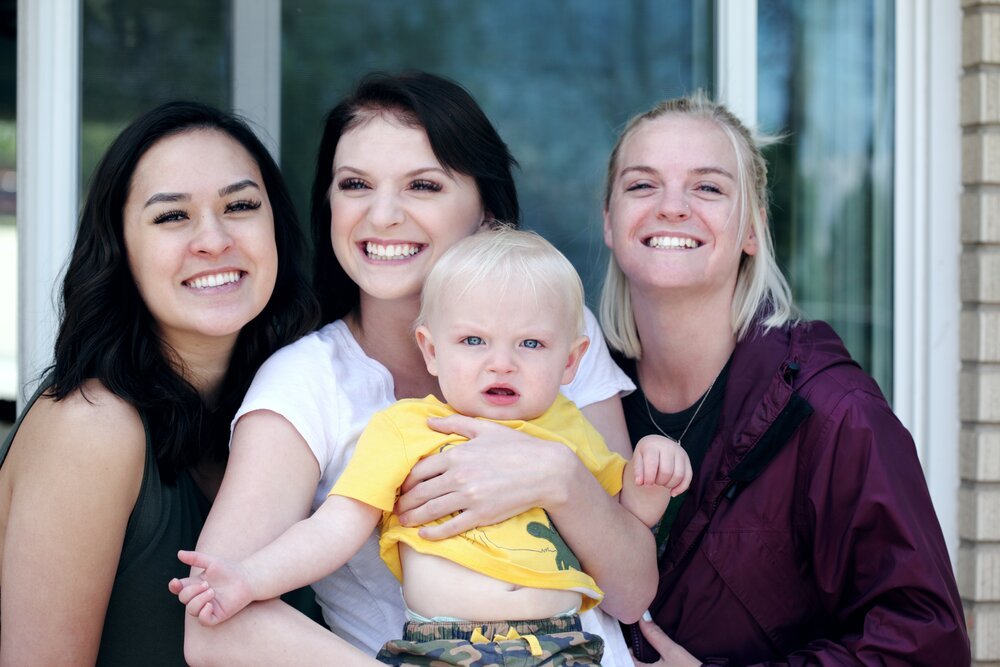The law relating to same-sex parenting is complex and diverse. Firstly, we need to understand that in Australia, legislative power is divided between the Commonwealth and state governments. What that means is, whilst the Commonwealth Government is primarily entitled to legislate specific issues, those that are not expressly or impliedly vested under the Commonwealth remains within the legislation of the state government. In Family Law for example, the legislative power to determine whom a child should live with post-separation or declaration of parentage rests with the Commonwealth, whilst issues such as adoption, access to assisted conception procedures and surrogacy arrangements is vested in the states. This means that each state may pass legislation that may well overlap the Commonwealth legislation. Provisions in the Family Law Regulations 1984 (Cth) are established to create a link between the state and Commonwealth Family Law Act 1975 (FLA).
In circumstances where the law fails to recognise a person as a legal parent, it may nevertheless be possible for the Family Courts to make a parenting order in favour of such a person (section 64C of the FLA). Section 65C(c) of the FLA states that an applicant can be “any other person concerned with the care, welfare or development of the child”.
In Victoria, the Assisted Reproductive Treatment Act 2008 allows women and lesbian couples to access assisted conception procedures. Certain criteria must be met before a woman and her partner (if any) may access this procedure, for example Victorian Criminal (Police) Record Check and Child Protection Order check prior to commencing treatment. In other states such as New South Wales where Assisted Reproductive Technology Act 2007 applies, different legislation regulates access to assisted conception procedures.
The FLA in 2008 was amended to recognise both members of a lesbian partnership as parents of a child born of an assisted conception procedure (Section 60H FLA). This applies as long as the biological lesbian mother was married to, or is a de facto partner of the other intended lesbian co-mother, and the parties both consented to the carrying out of the procedure.
Meaning to say, in the scenario of a lesbian partnership who had a baby from an anonymous donor and raised this child at separation may apply for a parenting order under this Act – on the basis that the couple has been living together in a de facto relationship/marriage at the time of conception, and that both lesbian parties have consented in writing to the procedure/treatment being undertaken. Otherwise, the non-biological mother may not be legally considered to be the other parent of the child.
Section 13 of the Status of Children Act 1974 (Victoria) states that the man who produced the semen used in the procedure is presumed not to be the father of any child born as a result of the pregnancy, or has no legal status in respect of the chid, whether or not he is anonymous.
The scope of Section 60H of the FLA is limited to a child having two parents. The legislation approach proves to be challenging in more complex scenario, for example, where a lesbian couple and gay male couple choose to co-parent their child conceived through assisted conception procedure, as was in the case of Wilson v Roberts (2010). In this case, the Court found that the two women were the parents of the child, not either of the men.
In a scenario where a gay male couple have a child through ART, this child will have a birth mother (woman bearing the child) and two gay co-fathers. If the child is conceived through intercourse, the gay biological father will be the legal parent with the child’s birth mother. Whilst the birth mother will be the legal parent/mother of the child, the parenting presumption does not favour a gay co-father or gay couple, unless the birth mother allows the couple to adopt the child. Gay male couples also apply to the Family Court of Australia for a parenting order as ‘other people significant to the care, welfare and development’ of the child. Gay male couples who do not formalise their parental rights in this way will not have the legal right to make decisions in relation to their child.
It is also important to recognise that in States where commercial surrogacy is not permitted under State law, then parties who have entered into a commercial surrogacy arrangement (for example, overseas), will not be recognised as parents in the same way as couple who enter into ‘altruistic’ surrogacy arrangements can be.
Parenting orders covered under the FLA may include parental responsibility involving long-term decisions regarding the child’s welfare or where and with whom the child will live or spend time with. It is important to keep in mind that in considering all scenarios, the FLA makes the best interests of a child as a primary consideration in all decisions relating to children.

